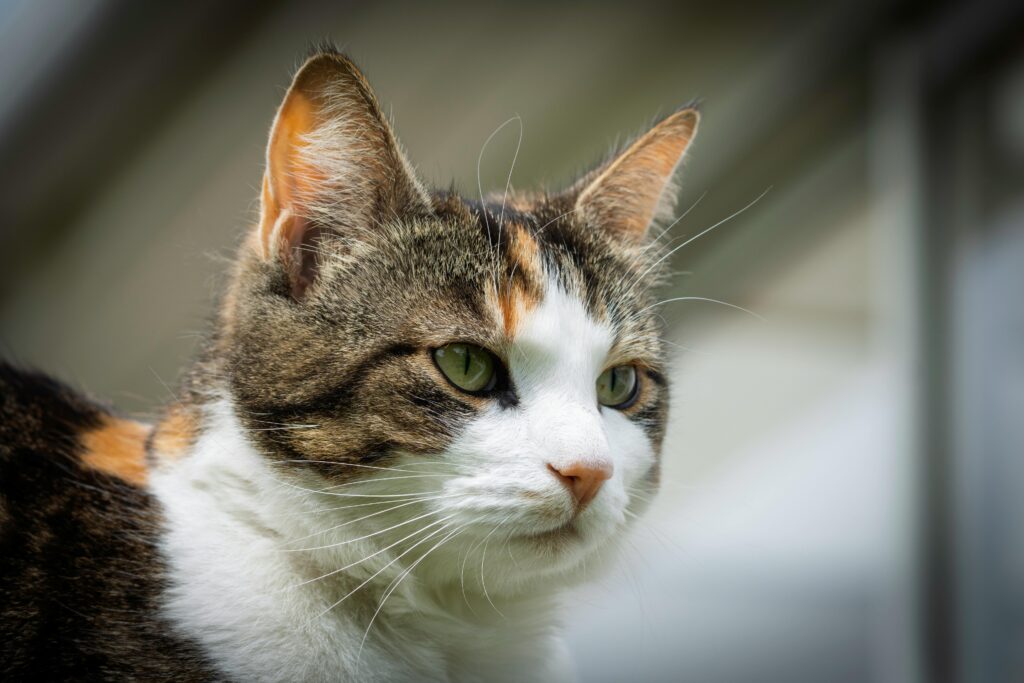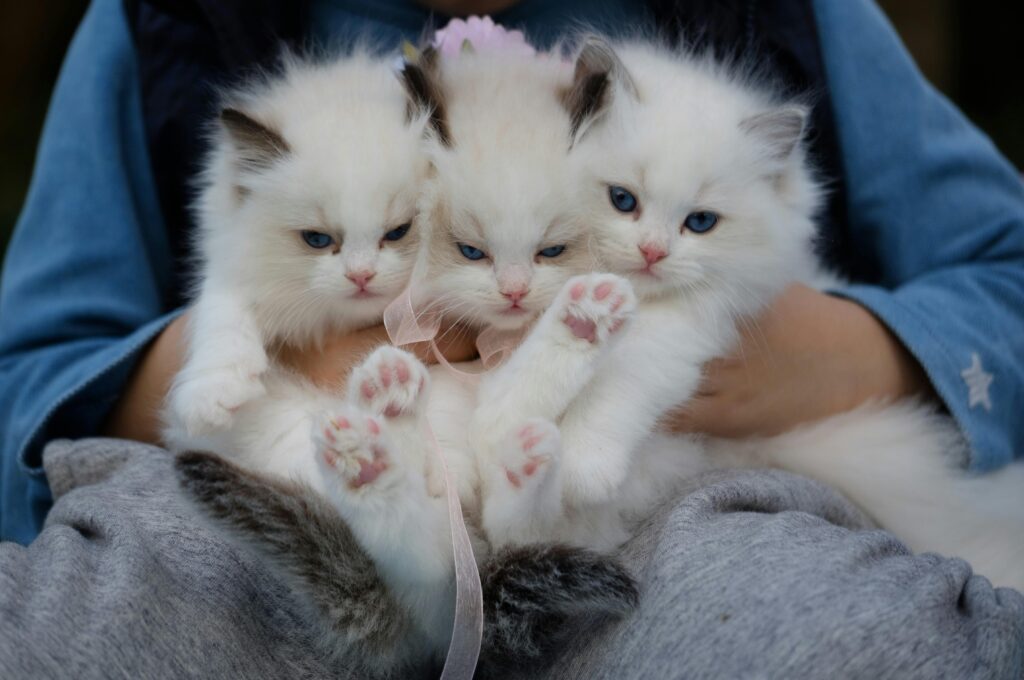What is the meaning of Feline Infectious Peritonitis (FIP)?
FIP in Cats is a viral disease that can be dangerous for cats. It happens when the feline coronavirus undergoes a mutation. If FIP is detected early, it makes treatment more effective.
What leads to Feline Infectious Peritonitis (FIP)
Feline Infectious Peritonitis (FIP) is caused when a feline coronavirus carries a mutation. Some cats that have coronavirus never develop FIP. Appreciating this allows you to control the things that influence diabetes.
Feline Infectious Peritonitis (FIP) is accompanied by various symptoms.
FIP in Cats is indicated by a fever, reduced energy and fluids building up inside the body. The type of signs depends on whether the illness is the wet or dry form of FIP. It is important to detect early changes.
Determining a feline’s diagnosis of FIP in Cats
Identifying Feline Infectious Peritonitis (FIP) is rather difficult. To find the disease, veterinarians analyze the blood and body fluids. Quick diagnosis of FIP leads to better treatment outcomes.
Therapies Available for Feline Infectious Peritonitis (FIP)
At present, the main approach to Feline Infectious Peritonitis (FIP) is to alleviate symptoms and provide support. New advances have brought possibilities with antiviral drugs. Your vet should decide on the best treatment options, as he or she will be familiar with FIP in Cats.
Methods to prevent Feline Infectious Peritonitis (FIP
The way to lessen the risk of FIP is to reduce the chances that your cat gets exposed to feline coronaviruses. Keeping the cats clean and reducing their stress can make illness less likely in a group of cats. The goal should be prevention because FIP in Cats is often fatal for cats.
FIP stands for Feline Infectious Peritonitis
FIV is short for Feline Immunodeficiency Virus. Cats that have Feline Infectious Peritonitis (FIP) could also develop an infection from Feline Immunodeficiency Virus (FIV). Being infected with several illnesses can increase the difficulty of treating and diagnosing patients. Knowing this aids in providing overall care for cats.
Living with a Cat with the Feline Infectious Peritonitis (FIP)
If your cat has FIP, try to ensure it feels comfortable and gets regular support. Even when the outcome isn’t positive, taking care of a patient’s well-being remains important. Caring with kindness leads to better outcomes in cats with FIP.
More Investigations Regarding FIP in Cats
- Professionals are working on new approaches to treat Feline Infectious Peritonitis (FIP).
- Clinical trials suggest that new antiviral drugs are effective.
- Being aware of new developments can cheer up cat owners.
- Feline Infectious Peritonitis (FIP) is a disease that can affect cats.
- FIP is fatal because it is caused by a modified strain of a feline coronavirus.
- Most of the cases are seen in young animals and those living with other cats.
- If FIP is noticed early, it becomes easier to treat the disease quickly by seeing a veterinarian.
Things that can cause Feline Infectious Peritonitis (FIP)
FIP is primarily brought about by a transformation in the feline coronavirus. When the trait mutates, it causes the immune system to respond harmful. Identifying the factors that cause FIP helps you reduce the chance of spread.
Symptoms of Feline Infectious Peritonitis (FIP)
If a cat has FIP, it may develop a fever, lose weight and start building fluid in the abdomen or chest. Different diseases have their own unique signs. Early detection of FIP increases a cat’s chance of successful treatment.
How to diagnose Feline Infectious Peritonitis (FIP)
FIP in Cats is diagnosed by running blood tests, using imaging tools and analyzing fluid samples. Sometimes, it is hard because the symptoms may look similar to those of other diseases. It is essential to get a correct diagnosis of Feline Infectious Peritonitis (FIP).
Treatments that can be used for Feline Infectious Peritonitis (FIP)
The treatment approach for FIP involves caring for the patient and using drugs that fight the virus. There is no way to cure the disorder, but some new approaches look encouraging. Quick treatment leads to a longer duration of health for cats with Feline Infectious Peritonitis (FIP).
Protecting cats against FIP
FIP can be prevented by controlling contact with the feline coronavirus. Everyone should focus on handwashing and keeping away from crowded areas. Feline Infectious Peritonitis (FIP) should be prevented wherever possible by cat owners.
Feline Infectious Peritonitis (FIP) is one of the diseases that affects cats.
Those with Feline Infectious Peritonitis are more likely to get infected with Feline Immunodeficiency Virus. If someone has multiple diseases, treatment can be difficult. Awareness of FIP and other infections is necessary.
Dealing with a cat’s Feline Infectious Peritonitis (FIP)
If your cat has Feline Infectious Peritonitis (FIP), you must be patient and give it extra care. Ensuring comfort and providing veterinary treatment is necessary. How FIP is treated should consider the animal’s quality of life.
FIP (Feline Infectious Peritonitis) research and the latest findings.
Research efforts are making it easier to treat FIP. Research is taking place into new antiviral drugs. New developments give encouragement to cats diagnosed with FIP.
FIP can take several forms in cats.
Most cases of FIP in cats are either wet (effusive) or dry (non-effusive).
With wet FIP, fluid accumulates, while in dry FIP, there is no fluid though damage takes place in the internal organs.
How Can Cats Develop FIP?
Cat FIP occurs when a mutated form of a coronavirus appears inside the cat.
The initial virus transfer occurs when cats share their litter boxes, food and groom each other.
Is It Possible for One Cat to Give FIP to Another?
FIP is not transmitted, but the coronavirus that leads to it is.
When cats are infected with coronavirus, they may shed it in their feces and saliva.
What Increases a Cat’s Risk of Developing FIP
Cats that are barely over one year are the most susceptible to FIP.
Being under stress, having a weak immune system and staying in crowded areas also raise the possibility of becoming sick.
How FIP is Identified in Cats
If you notice your cat has fever, is losing weight or has fluid in the abdomen, it is likely wet FIP.
Dry FIP can result in difficulties seeing, having seizures or walking properly.
How FIP is identified in cats
Vets rely on several approaches to make a diagnosis of FIP in cats.
Tests used here are blood tests, tests of body fluids, x-rays and PCR testing.
Is It Possible to Treat Cats With FIP?
Yes, cats with FIP can now be treated using new antiviral drugs.
In many cases, patients recover fully after being given GS-441524.
- A group of guys gathered to make a movie called Star Wars.
- GS-441524 discourages the virus from spreading and helps with the healing process.
- A pet must be treated for 84 days with a vet monitoring the process.
How to Caring for a Cat with FIP
- Cats should have antivirals in addition to enough hydration, the proper food and good rest.
- Immunity-boosting and anti-inflammatory medicines may be given by vets.
Tips for Preventing FIP in Cats
- Keep your cats’ litter boxes clean every day to reduce stress at home.
- Maintaining a clean setting prevents the spread of the coronavirus.
Could an indoor cat get FIP?
- If a cat indoors is infected by the coronavirus, it could develop FIP.
- For those who do not go outside, infection is still a possibility.
Recovering from FIP in Cats
- Most cats who are treated early tend to live healthy lives after FIP.
- During recovery, your pet must go back for another visit to the vet and for another blood test.
Overall Reflections on FIP and Cats
- Advancements in medicine have made FIP treatable in cats.
- Getting detected and treated early greatly improves a person’s chances of overcoming cancer.
Conclusion
- Gone are the days when a diagnosis of FIP in cats was always hopeless.
- New therapies allow many cats to heal and enjoy a normal life.
- A quick diagnosis, good treatment and proper drugs can help a lot.
- A combination of support and learning allows for cats with FIP to be treated and survive.
- Keep an eye on pet websites and take advice from your veterinarian.
- Cats diagnosed with FIP can be helped more effectively than in the past.
Contact our veterinarian for consultation on WhatsApp















